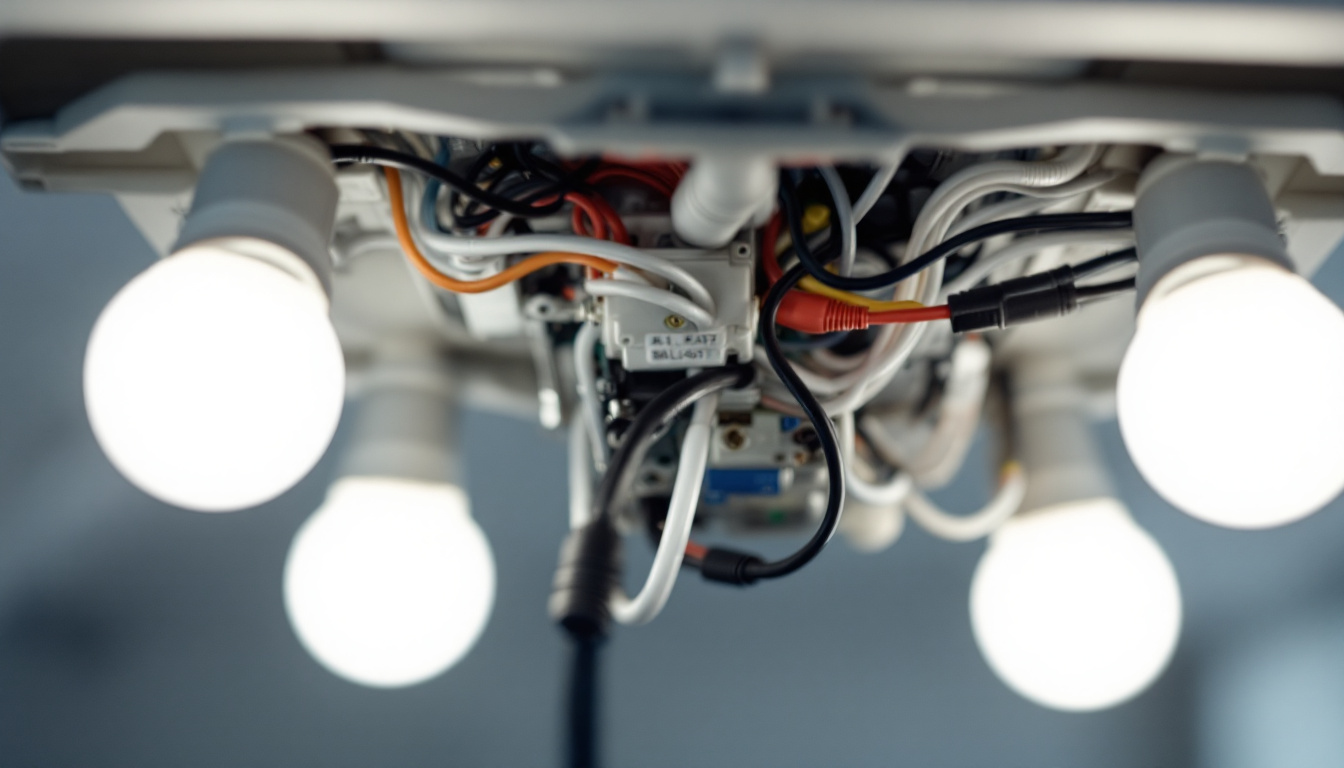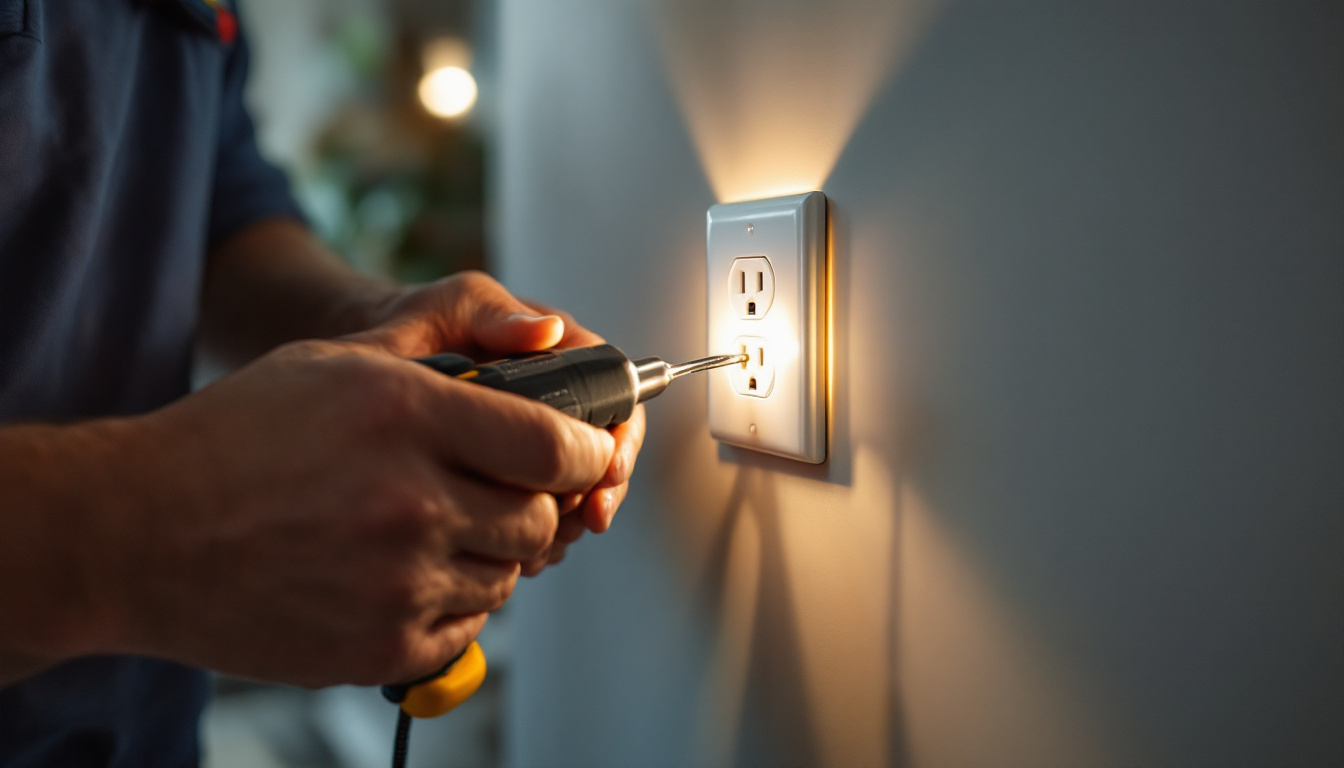
Lighting Com: Proven Methods for lighting contractors
In the ever-evolving world of lighting design and installation, staying ahead of the competition is crucial for lighting contractors. With advancements in technology, changes in consumer preferences, and a growing emphasis on sustainability, contractors must adapt and refine their methods to ensure success. This article explores proven methods that can enhance the efficiency, quality, and profitability of lighting contractors.
One of the foundational steps for any lighting contractor is to thoroughly understand the needs and preferences of their clients. This involves not only listening to their requirements but also interpreting their vision and translating it into practical solutions. Each client comes with a unique set of expectations, influenced by their personal style, the purpose of the space, and the atmosphere they wish to create. Therefore, taking the time to delve into these elements is crucial for a successful project outcome.
Clear and effective communication is essential in building trust and rapport with clients. Lighting contractors should engage in active listening, asking open-ended questions to draw out detailed responses. This approach allows contractors to grasp the nuances of a client’s vision, ensuring that the final design aligns with their expectations. Regular updates and check-ins throughout the project lifecycle can further enhance this relationship, allowing clients to feel involved and valued in the decision-making process.
Moreover, using visual aids such as sketches or digital renderings can help convey ideas more effectively. These tools can bridge the gap between technical jargon and client understanding, making it easier for clients to visualize the proposed solutions. Additionally, providing mood boards or material samples can inspire confidence in the contractor’s choices and facilitate discussions about colors, textures, and styles that resonate with the client’s aesthetic preferences.
Before embarking on any project, conducting a thorough assessment of the space is vital. This includes evaluating the existing lighting conditions, understanding the layout, and identifying any specific challenges that may arise. Factors such as natural light availability, room dimensions, and color schemes should all be considered. Furthermore, understanding the intended use of each area—whether it’s for relaxation, work, or entertainment—can significantly influence the lighting design.
By performing a detailed assessment, contractors can provide tailored recommendations that enhance both functionality and aesthetics. This personalized approach not only satisfies client needs but also demonstrates professionalism and expertise. Additionally, taking into account energy efficiency and sustainability options can appeal to environmentally conscious clients, allowing contractors to propose solutions that are not only visually appealing but also cost-effective in the long run. Such considerations can lead to innovative designs that incorporate smart lighting technologies, ultimately creating spaces that are both beautiful and functional.
In today’s digital age, technology plays a pivotal role in the lighting industry. From design software to smart lighting solutions, embracing technological advancements can significantly improve a contractor’s efficiency and service quality.
Design software allows contractors to create detailed lighting plans and simulations. Programs that offer 3D modeling capabilities enable contractors to visualize the lighting design in the context of the actual space. This not only aids in the design process but also helps in presenting ideas to clients in a compelling way.
Additionally, some software solutions include features for calculating energy efficiency and lighting levels, providing contractors with the data needed to make informed decisions. By leveraging these tools, contractors can enhance their design accuracy and streamline the planning process.
Smart lighting technology is rapidly gaining popularity among consumers. Features such as remote control, automation, and energy monitoring appeal to clients looking for convenience and efficiency. Contractors should familiarize themselves with the latest smart lighting products and systems to meet this growing demand.
Integrating smart lighting solutions into projects can elevate a contractor’s offerings, providing clients with modern, adaptable lighting that enhances their living or working environments. Furthermore, promoting the energy-saving benefits of smart lighting can also align with the increasing emphasis on sustainability.
Energy efficiency is not just a trend; it is becoming a standard expectation among clients. Lighting contractors must prioritize energy-efficient solutions to meet client demands and contribute to environmental sustainability.
The selection of lighting products plays a crucial role in achieving energy efficiency. LED technology, for instance, has revolutionized the industry, offering longer lifespans and lower energy consumption compared to traditional lighting options. Contractors should stay informed about the latest developments in energy-efficient products to provide clients with the best options.
Additionally, understanding the energy ratings and certifications of products can help contractors make informed recommendations. By educating clients about the long-term savings associated with energy-efficient lighting, contractors can enhance their value proposition.
Beyond product selection, design strategies can significantly impact energy efficiency. Techniques such as layering light, utilizing natural light, and strategically placing fixtures can optimize illumination while minimizing energy use. Contractors should consider these strategies when developing lighting plans.
Moreover, educating clients about the importance of proper lighting placement and the benefits of using dimmers and timers can further enhance energy efficiency. By adopting a holistic approach to lighting design, contractors can create spaces that are both beautiful and sustainable.
Effective project management is essential for lighting contractors to ensure projects are completed on time and within budget. Developing strong organizational skills and utilizing project management tools can greatly improve overall efficiency.
Creating a detailed project plan that outlines timelines, milestones, and resource allocation is crucial. Contractors should establish clear schedules and communicate these timelines with clients to set realistic expectations. This proactive approach minimizes the risk of delays and helps maintain client satisfaction.
Additionally, utilizing project management software can streamline scheduling and task management. These tools allow contractors to track progress, assign responsibilities, and manage budgets effectively. By staying organized, contractors can enhance their productivity and deliver high-quality results.
Lighting contractors often work alongside other trades, such as electricians and interior designers. Establishing strong collaborative relationships can lead to smoother project execution. Open lines of communication with other professionals involved in the project can help address potential issues before they escalate.
Moreover, participating in joint project meetings can foster teamwork and ensure that everyone is aligned with the project goals. By working collaboratively, contractors can enhance the overall quality of the project and improve client satisfaction.
In a competitive market, effective marketing strategies are essential for lighting contractors to attract new clients and build a strong brand presence. Understanding the target audience and crafting a compelling narrative can set a contractor apart from the competition.
A well-designed website serves as a powerful marketing tool for lighting contractors. It should showcase the contractor’s portfolio, highlight services offered, and provide client testimonials. A professional website not only establishes credibility but also serves as a platform for potential clients to learn more about the contractor’s expertise.
Incorporating a blog section can further enhance the website’s value by providing informative content related to lighting trends, tips, and industry insights. This positions the contractor as an authority in the field and can drive organic traffic to the site.
Social media platforms offer an excellent opportunity for lighting contractors to engage with potential clients and showcase their work. Regularly posting project updates, design ideas, and industry news can help build a loyal following and attract new leads.
Visual platforms like Instagram and Pinterest are particularly effective for showcasing lighting designs. By sharing high-quality images and videos, contractors can capture the attention of potential clients and inspire them with creative ideas for their own spaces.
The lighting industry is constantly evolving, with new technologies, trends, and regulations emerging regularly. Lighting contractors must commit to continuous learning and adaptation to stay relevant and competitive.
Attending industry trade shows, conferences, and workshops can provide valuable insights into the latest trends and innovations in lighting. Networking with other professionals can also foster collaboration and knowledge sharing, further enhancing a contractor’s skill set.
Subscribing to industry publications and online resources can keep contractors informed about emerging technologies and best practices. By staying up-to-date, contractors can make informed decisions and offer clients the most current solutions.
Feedback from clients and peers is invaluable for personal and professional growth. Contractors should actively seek feedback on their projects and services to identify areas for improvement. This can involve conducting client surveys or engaging in post-project discussions to gather insights.
By embracing a mindset of continuous improvement, contractors can refine their methods, enhance client satisfaction, and ultimately grow their business. Adaptability is key in a dynamic industry, and those who are willing to learn and evolve will thrive.
Lighting contractors play a vital role in transforming spaces through effective lighting design and installation. By understanding client needs, embracing technology, focusing on energy efficiency, enhancing project management skills, and employing effective marketing strategies, contractors can position themselves for success in a competitive landscape.
Moreover, a commitment to continuous learning and adaptation will ensure that contractors remain at the forefront of the industry, ready to meet the ever-changing demands of clients. By implementing these proven methods, lighting contractors can enhance their efficiency, quality of service, and ultimately, their profitability.
Ready to elevate your lighting projects and outshine the competition? At LumenWholesale, we support your commitment to excellence by providing top-quality, spec-grade lighting products at unbeatable wholesale prices. Say goodbye to local distributor markups and hello to a vast selection of industry-standard lighting solutions that promise reliability and high performance. With free shipping on bulk orders, we ensure you get the premium lighting you need at the best value. Don’t compromise on quality or price. Discover wholesale lighting at the best value today and bring your lighting projects to life with LumenWholesale.

Discover how Hi Lite is transforming the lighting industry by enhancing efficiency for contractors.

Discover the step-by-step guide to bypassing ballasts in 4-bulb fixtures, ensuring your lighting projects are efficient and future-ready.

Discover essential tips and expert advice for lighting contractors on transitioning from fluorescent lights to energy-efficient LED systems.

Discover essential insights for lighting contractors on selecting and installing duplex outlets.